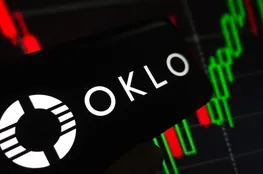Cathie Wood's Ark Invest offers investors several exchange-traded funds (ETFs) focused on the latest technology trends like artificial intelligence (AI), robotics, and cloud computing. Unlike typical index funds, Ark's ETFs are actively managed with the goal of outperforming a benchmark index over time. Among the most popular are the Ark Innovation ETF (ARKK) and Ark Next Generation Internet ETF (ARKW). While both are tech-centric and share significant overlap in top holdings, there are key differences to consider.
Both ARKK and ARKW are actively managed by prominent tech investor Cathie Wood. Each fund typically holds 35-55 stocks, with the top 10 holdings accounting for over 60% of total assets. Tesla, Roku, Coinbase, Block, Roblox, Palantir, UiPath, and Robinhood appear in the top 10 for both ETFs. The primary distinction between ARKK and ARKW lies in their investment objectives. ARKK seeks to invest in companies engaged in 'disruptive innovation,' covering a broad range of industries. ARKW, however, zeroes in on disruptors within the internet realm, encompassing cloud infrastructure, mobile internet, online/mobile payments, AI, and the Internet of Things.
This focus explains the overlap in top holdings, as many internet disruptors also qualify as disruptive innovators. Examining the holdings unique to each ETF provides further insight. ARKW's top holding is a Bitcoin ETF, signifying its focus on internet-based payments. Meta Platforms, another ARKW exclusive, highlights its internet-centric approach. In contrast, ARKK features CRISPR Therapeutics, a genetic-focused healthcare innovator, underscoring its broader disruptive innovation theme. Shopify, another top 10 holding unique to ARKK, reinforces this diversity.
Beyond the top 10 holdings, ARKK invests in a variety of fields: precision therapies (12% of assets), autonomous mobility (12.1%), programmable biology (2.6%), and adaptive robotics (2.1%). Cost is another differentiator. ARKK has a lower expense ratio of 0.75%, meaning $7.50 in annual management fees for every $1,000 invested. ARKW's expense ratio is slightly higher at 0.88%, justified by its specialized focus. Despite this seemingly small difference, higher costs can impact returns over time. Choosing between ARKK and ARKW depends on your investment goals. If you trust in Cathie Wood's ability to identify disruptive companies across various sectors, ARKK may be the better option thanks to its lower cost and broader scope.
However, if you're keen on investing specifically in the future of internet innovation, ARKW makes a compelling choice for your portfolio.
























